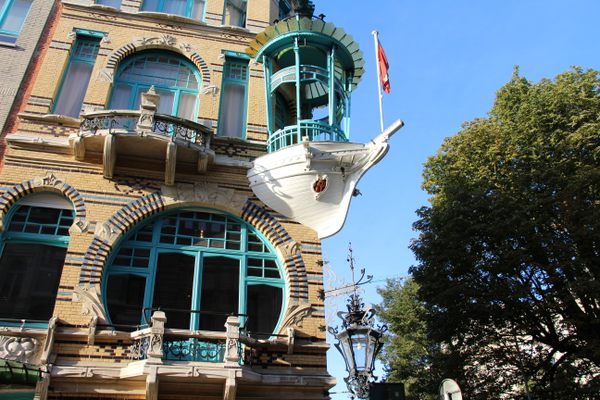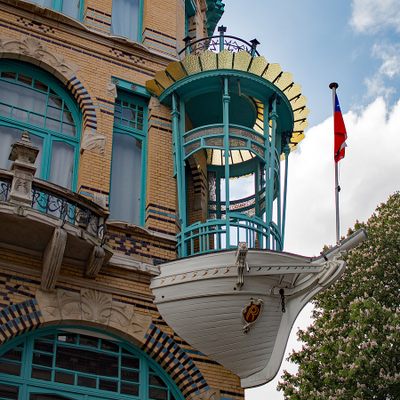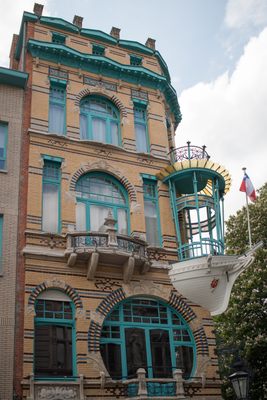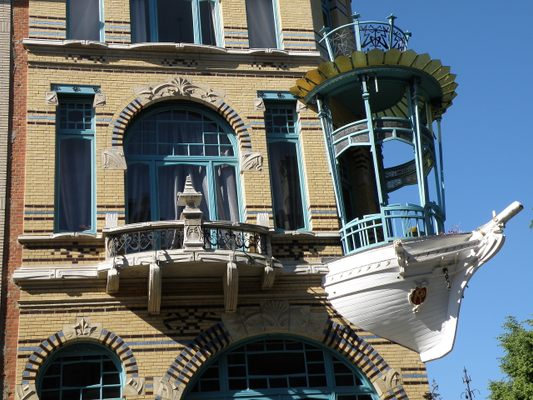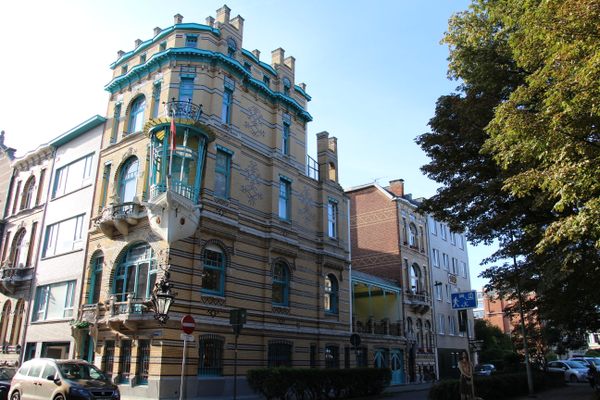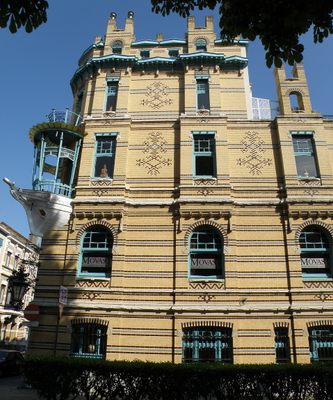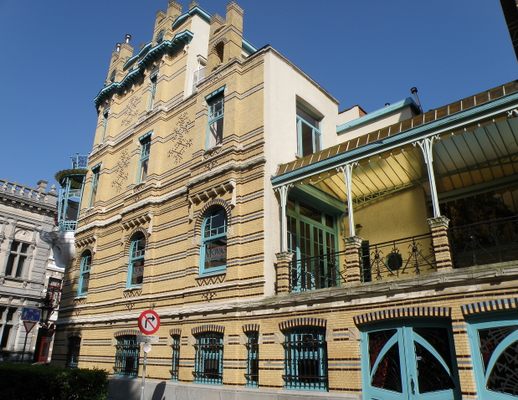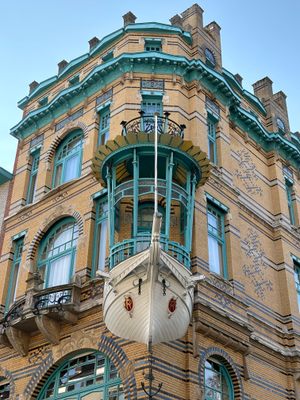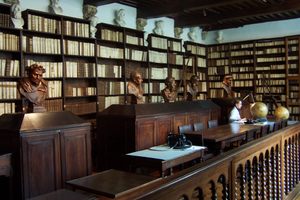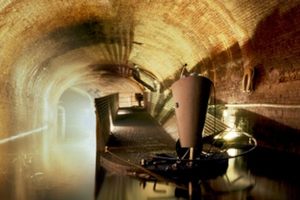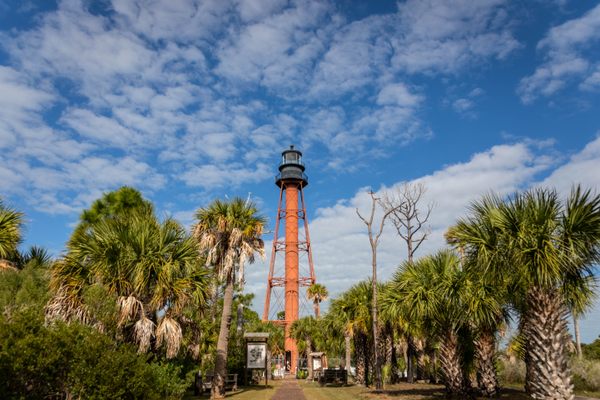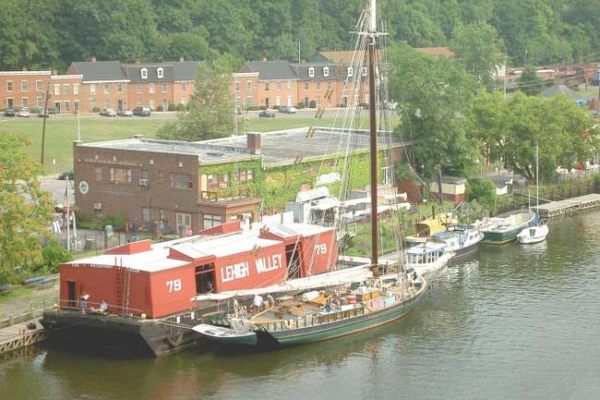About
At the turn of the 20th century, the Belgian city of Antwerp was in the grip of Art Nouveau mania. The latest fashion in art, architecture, and design to sweep Europe was characterized by its flamboyance and extravagance. One Antwerp client, however, was to push Art Nouveau on to even crazier extremes, a shipbuilder named P. Roeis.
In 1901, Roeis unveiled "The Five Continents" to an unsuspecting Antwerp. He had commissioned these four connected buildings from the architect Frans Smet-Verhas and each one was unashamedly Art Nouveau in its design, with liberal use of color, whiplash curves, and organic forms. Today, the structure still stands (though one of the four was demolished in the 1970s) at the corner of Schildersstraat and Plaatssnijderstraat, in an area famed for its profusion of Art Nouveau decoration.
It is Roeis’ extreme flight of fancy however that makes his building stand out among the others. He had asked Verhas to amend his original plans and incorporate a boat that would project out into the street on the corner elevation. This was to be a not-too-subtle allusion to his shipbuilding trade and source of wealth. The white prow of the boat emerges between the first and second floors and bears Roeis’ initials. It is rich with symbolism: Its loggia holds five windows, each representative of one of the five inhabited continents, while a small terrace enclosed by an iron balcony features lightning strikes representing a storm at sea.
Very soon after its construction, the building was unofficially named "Het Bootje" ("the Little Boat") by the people of Antwerp. Today it stands as a unique example of amped-up Art Nouveau, and a testament to a time in which architecture was strange, wondrous, and fun.
Related Tags
Know Before You Go
The Little Boat stands at the corner of Schildersstraat and Plaatssnijdersstraat. Please note that this is a private residence, and interior access is not possible.
Published
November 5, 2018
